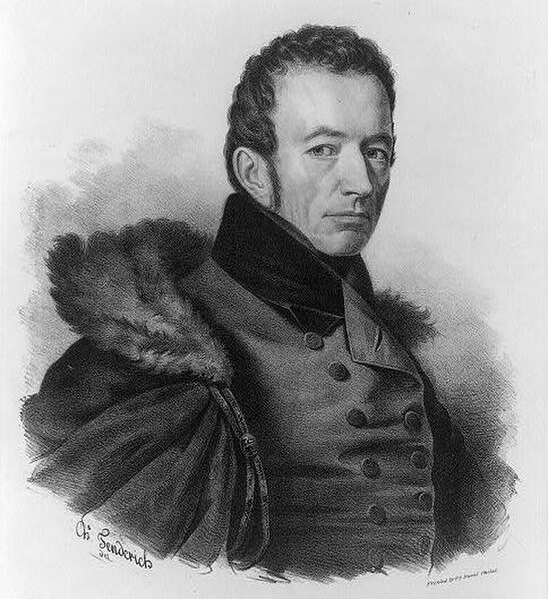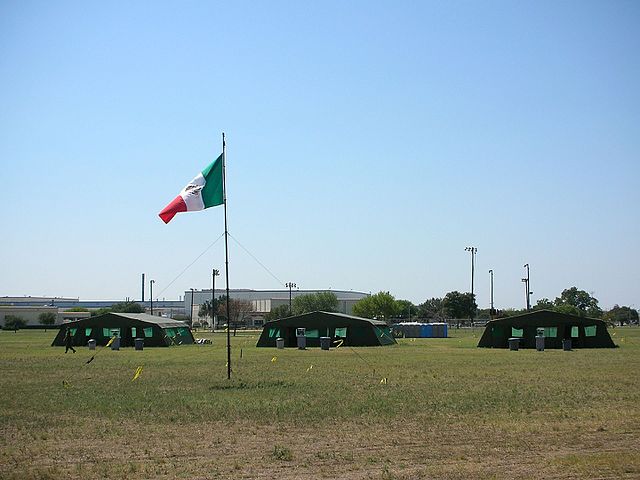Mexico–United States relations
Mexico and the United States have a complex history, with war in the 1840s and the subsequent American acquisition of more than 50% of former Mexican territory, including Texas, California, and New Mexico. Pressure from Washington forced the French invaders out in the 1860s. The Mexican Revolution of the 1910s saw many refugees flee North, and limited American invasions. Other tensions resulted from seizure of American mining and oil interests. The two nations share a maritime and land border. Several treaties have been concluded between the two nations bilaterally, such as the Gadsden Purchase, and multilaterally, such as the 2019 United States–Mexico–Canada Agreement, replacing the 1994 NAFTA. Both are members of various international organizations, including the Organization of American States and the United Nations.
Joel Roberts Poinsett, first U.S. envoy to an independent Mexico
Instruments of ratification for an 1832 treaty between the US and the United Mexican States
Melchor Ocampo
Robert Milligan McLane
Mexican response to Hurricane Katrina
In September 2005, units of the Mexican Armed Forces responded to the emergency situations after Hurricane Katrina with aid and assistance, appearing as a flagged, uniformed force in the United States for the first time since World War II in the 1940s and the first operational deployment of Mexican troops to the U.S. in 159 years.
U.S. and Mexican marines cleaning up hurricane debris outside of a Mississippian elementary school.
U.S. President George W. Bush conveys his gratitude to a Mexican marine on their cleanup efforts
Mexican navy sailors assigned to the Mexican amphibious warship ARM Papaloapan (P-411) disembark from a U.S. Navy landing craft as they prepare to work on rehabilitation projects in an around Biloxi, Mississippi.
The Mexican army's camp at Kelly AFB during their deployment to the U.S.








